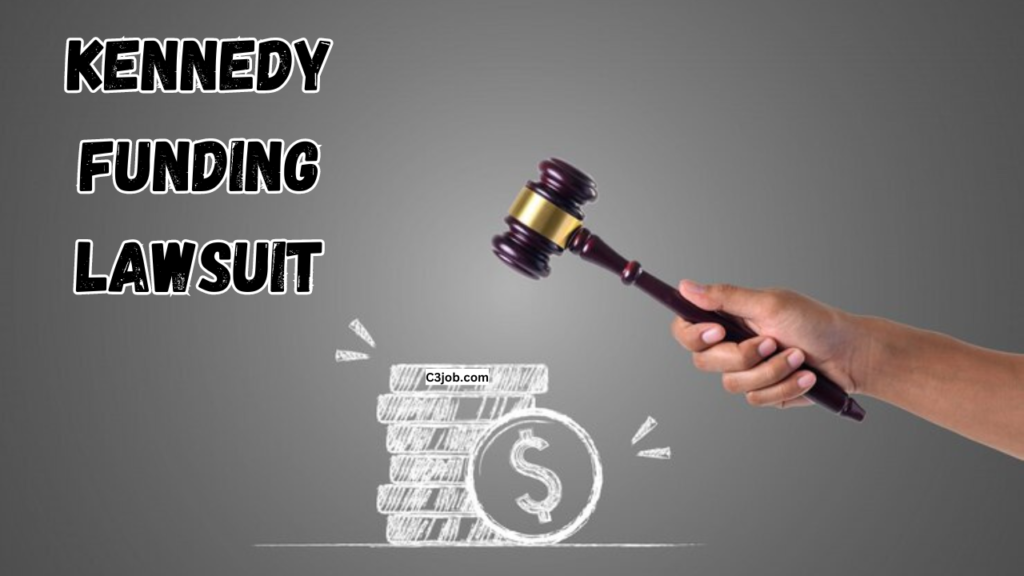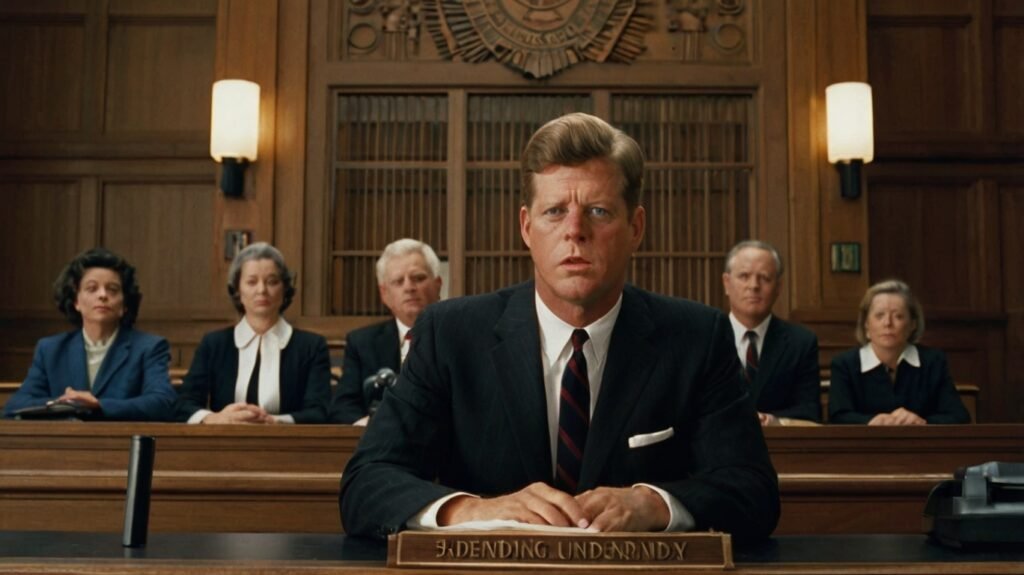It is a legal case that has garnered widespread attention due to the nature of the allegations. It revolves around significant financial transactions and real estate deals that went awry, leading to prolonged legal battles. This is an in-depth look into the Kennedy Funding lawsuit, explaining its origins, key legal arguments, and the potential implications for the industry.
Understanding the Kennedy Funding Lawsuit
The Kennedy Funding lawsuit first came into public view when multiple parties accused the company of various legal violations. Kennedy Funding is a renowned financial firm that specializes in providing high-value loans to companies and individuals involved in real estate deals. The primary complaint in the lawsuit alleges that Kennedy Funding engaged in deceptive practices during the loan approval process. These practices allegedly led to severe financial losses for the plaintiffs, who sought legal recourse.
The Kennedy Funding lawsuit centers around claims that the company misrepresented the terms of its loans, which later caused complications for borrowers. Additionally, allegations were made that Kennedy Funding failed to deliver on promises made during the negotiation phase of the deals.
The Key Parties Involved
It involves several key players, including the plaintiffs, who are real estate investors and developers. These individuals or companies claim that Kennedy Funding misled them during the loan negotiation process. The defendants, on the other hand, are senior executives at Kennedy Funding, who vehemently deny any wrongdoing.
Legal Grounds of the Kennedy Funding Lawsuit
The Kennedy Funding lawsuit is grounded on several legal arguments. First and foremost, the plaintiffs accuse Kennedy Funding of breach of contract. They claim that the company failed to adhere to the agreed-upon loan terms, causing significant financial harm. Secondly, they argue that Kennedy Funding engaged in fraudulent misrepresentation by providing false or misleading information during negotiations. Finally, the plaintiffs allege that Kennedy Funding violated certain state and federal lending regulations, further compounding their grievances.

Implications for the Real Estate Industry
It has raised serious questions about the transparency and fairness of financial transactions in the real estate sector. Should the plaintiffs prevail, it could set a legal precedent for how real estate loans are negotiated and enforced. Furthermore, a ruling against Kennedy Funding could lead to stricter regulatory oversight of lending practices in the real estate industry, ensuring that companies adhere to ethical standards.
The Defense’s Argument
Kennedy Funding has responded to the lawsuit by denying all allegations of wrongdoing. Their defense argues that the plaintiffs were fully aware of the terms and conditions of the loans.Kennedy Funding conducted all negotiations transparently, and the plaintiffs are now shifting blame for their financial troubles onto the company.
The defense in the Kennedy Funding lawsuit also contends that the plaintiffs failed to meet certain contractual obligations. They argue that any financial losses incurred by the plaintiffs were a result of their own failure to comply with the loan terms, rather than any deceptive actions on the part of Kennedy Funding.
Potential Outcomes
Several possible outcomes could arise from the Kennedy lawsuit. If the plaintiffs succeed, the court may require Kennedy Funding to pay substantial financial damages to compensate for the losses incurred. Moreover, the court may impose fines or other penalties on the company for violating lending regulations. Conversely, if Kennedy Funding successfully defends itself, it could emerge from the lawsuit with its reputation intact and continue its business as usual.

What This Means for Borrowers
It serves as a cautionary tale for borrowers in the real estate industry. It highlights the importance of thoroughly reviewing loan agreements and understanding the terms before signing any contracts. Borrowers must be vigilant to avoid falling into similar situations and should seek legal advice when negotiating large financial deals.
Lessons from the Kennedy Funding
One key lesson from the Kennedy Funding lawsuit is the necessity for transparency in financial transactions. Both lenders and borrowers must engage in clear, honest communication to ensure that both parties understand the terms of the agreement. Misunderstandings or misrepresentations, intentional or otherwise, can lead to significant legal and financial consequences.
How the Kennedy Funding Lawsuit Could Change Lending Practices
If the Kennedy Funding lawsuit results in a ruling against the company, it could lead to changes in how real estate loans are structured and negotiated. Lenders may face increased pressure to ensure that their loan agreements are clear, transparent, and compliant with all relevant laws. Additionally, this case may prompt legislators to introduce stricter regulations governing the lending practices of financial institutions.
Public Reaction
The public has reacted to the Kennedy Funding lawsuit with mixed opinions. Some people express sympathy for the plaintiffs, while others believe the case exemplifies opportunism. Regardless of public opinion, the legal proceedings will ultimately determine the outcome of this high-stakes lawsuit. Observers in the real estate and finance industries are closely following the case, as its implications could be far-reaching.

Ongoing Developments
As the Kennedy Funding lawsuit continues to unfold, new developments could arise that may influence the final outcome.Both sides expect to present extensive evidence to support their claims, and legal experts are closely watching the proceedings. While the court’s ruling remains to be seen, this lawsuit could significantly impact the real estate and lending industries.
Regulatory Scrutiny Resulting
It has sparked conversations among regulators about the need for increased oversight in real estate financing. The legal proceedings have revealed potential gaps in the existing regulatory framework, which may have allowed certain practices to go unchecked. If the lawsuit reveals broader issues with real estate lending, regulatory agencies may take a closer look at financial institutions like Kennedy Funding, leading to more stringent laws and compliance requirements for lenders in the industry.
Potential Settlements
While the Kennedy Funding lawsuit is still ongoing, there is always the possibility that the case could be settled out of court. Settlements are common in complex financial litigation as both parties may wish to avoid the lengthy and costly court process. A settlement in this lawsuit could result in Kennedy Funding paying damages without admitting any wrongdoing. On the other hand, the plaintiffs might accept a settlement as a quicker resolution, even if it means receiving less than what they initially sought in court.

Economic Consequences
It could have far-reaching economic consequences for both the plaintiffs and the defendant. For the plaintiffs, a win in court could mean recovering significant financial losses, potentially stabilizing their real estate ventures. For Kennedy Funding, the lawsuit poses financial risks, including legal fees, potential damages, and the loss of clients due to reputational damage. The broader economy could also be affected if the case prompts stricter lending regulations, which may alter how real estate transactions are financed in the future.
Key Takeaways for Real Estate Investors
It offers several key takeaways for real estate investors, particularly those involved in large-scale transactions. First, the case highlights the importance of performing thorough due diligence when securing financing. Investors should ensure they fully understand the terms and conditions of any loan agreement to avoid potential disputes. Additionally, the lawsuit emphasizes the value of legal representation during negotiations to protect their interests and prevent costly misunderstandings.
Industry Reactions
The real estate and financial sectors have responded to the Kennedy Funding lawsuit with mixed reactions. Some industry professionals view the lawsuit as a wake-up call, urging lenders and borrowers to exercise more caution and transparency in their dealings. Others argue that the case may be blown out of proportion, and that Kennedy Funding’s actions are not representative of the industry as a whole. Regardless of where they stand, industry players are closely watching the case, as its outcome could influence future business practices.
Conclusion
The Kennedy Funding lawsuit represents a complex legal battle with significant implications for the real estate industry. The case underscores the importance of transparency, honest communication, and adherence to legal standards in financial transactions. Whether the plaintiffs or the defense prevail, the outcome of the Kennedy Funding lawsuit could shape lending practices and regulatory oversight for years to come. As the legal process continues, both borrowers and lenders in the real estate market should pay close attention to this case, as it may serve as a critical turning point in the industry.

See alsoJack Dafoe: A Remarkable Life and Career
FAQs
1. What is the Kennedy Funding lawsuit about?
It involves accusations of deceptive practices during real estate loan negotiations, leading to financial losses.
2. Who are the key parties involved?
It includes plaintiffs, primarily real estate investors, and developers, who accuse the company of financial deception.
3. What are the main legal accusations?
It accuses the company of breach of contract, fraudulent misrepresentation, and violation of lending regulations, causing harm.
4. How does Kennedy Funding defend itself in the lawsuit?
Kennedy Funding denies wrongdoing, arguing the plaintiffs understood the loan terms and are now blaming the company for failures.
5. What are the potential outcomes of the Kennedy Funding lawsuit?
It could result in financial compensation or penalties for the company, depending on the court’s ruling.
6. Could the Kennedy Funding lawsuit lead to increased regulatory scrutiny?
Yes, it might prompt regulators to impose stricter lending regulations if broader issues within real estate financing practices are revealed.
7. How does the lawsuit impact Kennedy Funding’s reputation?
The Kennedy Funding lawsuit has damaged the company’s reputation, leading to potential long-term effects on its client relationships.
8. What role does legal counsel play in the Kennedy Funding lawsuit?
Legal counsel on both sides of the Kennedy Funding lawsuit will significantly impact the outcome through strategies and arguments.
9. What lessons can real estate investors learn from this case?
It teaches real estate investors the importance of thorough loan agreement reviews and seeking legal representation.
10. Could it be settled out of court?
Yes,It could potentially settle out of court, avoiding a lengthy legal process for both parties involved.
11. How does the public perceive?
Public opinion on the Kennedy lawsuit is divided, with some sympathizing with the plaintiffs, while others view it as opportunism.
12. What are the long-term consequences?
Long-term consequences of the Kennedy lawsuit may include stricter regulations, financial losses for Funding, and altered business practices.
13. How does the lawsuit affect the real estate lending industry?
It could lead to changes in how real estate loans are structured and negotiated moving forward.
14. What are the primary allegations of fraudulent misrepresentation?
In the lawsuit, plaintiffs allege the company misrepresented loan terms, causing unforeseen financial complications during repayment.
15. What key factors could determine the outcome?
The outcome of the Kennedy lawsuit depends on evidence, legal strategies, and how the court interprets lending regulations.



